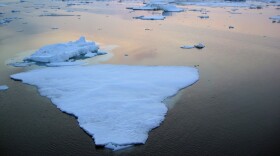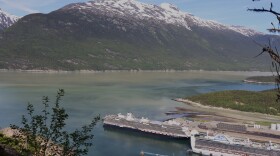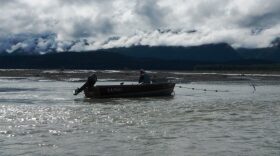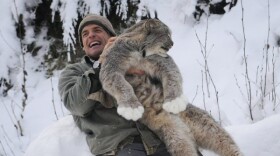
Avery Ellfeldt
Alaska Desk Reporter, HainesAvery Ellfeldt covers Haines, Klukwan and Skagway for the Alaska Desk from partner station KHNS in Haines. Her coverage touches on issues ranging from mining and conservation to climate change and tourism in the Lynn Canal. Avery joined the Alaska Desk in early 2025 after moving to Haines sight unseen.
Avery has covered climate change for Politico’s E&E News in Washington, D.C. and Denver, Colorado, her hometown. When Avery isn’t at work, you can find her hiking, backpacking and learning new outdoor sports. She also enjoys photography, cooking with friends and occasionally using her bachelor’s degree in Spanish, which she earned from St. Olaf College in 2019.
Reach Avery at avery@khns.org.
-
The proposal has revived concern over legacy contamination from ore shipping in the local port, and how to ensure it doesn’t continue.
-
A new report highlights weather extremes and warmer overall temperatures – two signs of climate change.
-
The film, by a former resident, looks at what happened when the town’s economy essentially shut down for nearly two years.
-
State Sen. Jesse Kiehl says he’s drafting legislation to address water pollution from cruise ships that use scrubbers to clean their exhaust.
-
The pushback has largely centered around concerns that the new terminal would make regional travel less convenient and efficient, not more, as the state has argued.
-
The campaign came the same week that Vizsla announced plans for the project for this year – and touted a formal letter of support from Gov. Mike Dunleavy.
-
Kiehl said he’s focused on everything from balancing the state budget to addressing largely unregulated water pollution by the cruise industry.
-
The student council is calling on the Skagway School Board to make the attendance policy more inclusive by allowing students to take seven subsistence days per semester.
-
There will be no trial as long as Steve Kroschel remains overseas, the judge said at a hearing last week.
-
New research found that absent climate action, it’s extremely likely coastal Alaska’s wetlands will become too warm for salmon before the end of the century.










